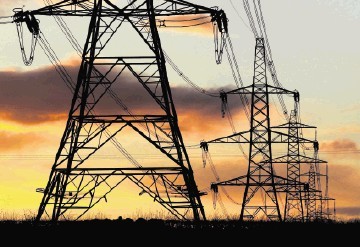
The UK Government “sailed too close to the wind” before taking measures to keep the lights on, at a cost to taxpayers and the environment, peers have said.
An inquiry by the Lords science and technology committee, prompted by concerns over blackouts as the country’s capacity to meet peak demand was squeezed, found it would take an “improbable” sequence of events to put the lights out nationally.
But they criticised the government for putting in measures to increase electricity capacity at short notice and expense, relying heavily on fossil fuel generation.
The measures involved payments for power plants which would otherwise be shut down or mothballed to stay online and provide power if needed and paying large electricity consumers to reduce consumption or use their own backup fuel generators.
They went against efforts to cut carbon from the UK’s power sector, the Lords warned in a report on the resilience of electricity supplies.
And the situation could have been much worse if demand for electricity had continued to grow, rather than falling substantially since the economic crisis.
Electricity supplies were also increasingly dependent on information and communication technology, making them vulnerable to cyber-attacks, the report warned.
A sustained failure of electricity supplies could have dramatic consequences, resulting in a “catastrophic failure” of communications and services on which the UK is now heavily dependent, hitting the economy and public safety, it said.
The Lords called for a more flexible electricity system, giving consumers more control over how and when they used electricity, with the help of technology such as smart meters, and exploring measures such as small-scale nuclear and interconnection with other countries.
And they warned that the more efforts were made to cut carbon emissions from the electricity sector, the harder it became to make sure power was affordable and supplies were secure.
The government must do more to inform people of potentially higher prices, the committee said.
Chairman Lord Selborne added: “We chose to look at this issue because, such is our increasing reliance on electricity, any blackouts have the potential to bring our communications and vital services to a grinding halt.
“The encouraging finding from our investigation is that overall, the resilience of the electricity system is robust, and witnesses told us we have the most reliable transmission network in Europe.
“But our report found that the government sailed too close to the wind, allowing the capacity margin, its safety net, to be squeezed too tightly before taking last minute measures.
“Moreover, these measures, which came at a cost to the taxpayer, were in conflict with the government’s wider aims to de-carbonise electricity generation.”
Read more Europe news here.
Recommended for you
